How Is The World Health Organization Funded, And Why Does It Rely So Much On Bill Gates?
Currently, WHO has full control over only about a quarter of its budget. WHO therefore can't set the global health agenda & has had to do the bidding of rich donors-Lawrence Gostin (WHO TOP Ethicist)
Join us over at SuetheWHO.substack.org and subscribe if you have not already to our new publication: Sue the WHO Legal Initiative (Idiot’s Guide To EXIT the WHO) Its where we will post all the legal actions against WHO and create country coalitions to EXIT the WHO!
Article first published on 03/02/2023
Exactly 3 months later, - June 2, 2023 Tedros claimed, with no elaboration on HOW: “IF there is any conflict of interest we have WAYS TO MANAGE THAT”
Let’s get into the article:
Critics complain about the major role the Bill and Melinda Gates Foundation plays in funding WHO, but who else can the agency turn to?
The Bill & Melinda Gates Foundation – which still stands strong despite its two co-founders splitting up after 27 years of marriage – said last month it was “not right” for the charity to take on such a big role in funding the World Health Organization (WHO).
Over the years, the billionaire philanthropists have become the WHO’s second biggest donor, making the health agency heavily dependent on their support to keep functioning.
Global health experts say that while this money is welcome, it gives the Gates an outsized influence and underscores the chronic funding problem WHO faces even as it contends with more and more health crises.
“WHO has an annual budget less than the size of a single large teaching hospital in the United States and one-quarter of the budget of the US Centers for Disease Control and Prevention (CDC),” said Lawrence Gostin, Director of the WHO Collaborating Center on National and Global Health Law.
“Yet it has a huge global health responsibility, including responding to major public health emergencies such as COVID-19, Mpox (formerly monkeypox), Ebola, and polio,” he told Euronews Next.
WHO’s executive board is meeting this week in Geneva seeking an even greater role to better prepare for the next pandemic, but still lacking answers on how to fund it.
How is WHO funded?
The health agency gets funding from member states paying membership dues, alongside additional voluntary donations from member states and other partners like the Bill & Melinda Gates Foundation.
Member countries pay what are called “assessed contributions,” a percentage of a country’s GDP agreed upon every two years at the World Health Assembly. Usually, these sums cover less than 20 per cent of WHO’s total budget.
That means over 80 per cent of WHO’s funding relies on “voluntary contributions,” meaning any amount of money given freely by donors, whether member states, NGOs, philanthropic organisations or other private entities.
These voluntary contributions are typically earmarked for specific projects or diseases, meaning WHO cannot freely decide how to use them.
“Currently, WHO has full control over only about a quarter of its budget,” said Gostin.
“WHO therefore can't set the global health agenda and has had to do the bidding of rich donors, not only rich nations in Europe and North America, but also rich philanthropies such as the Gates Foundation”.
Though Gostin “certainly” wants the Foundation to keep funding WHO, he argued the health body should be able to use the funds “at its own discretion on issues the Director General believes are most important in the world”.
“Currently, WHO has full control over only about a quarter of its budget. WHO therefore can't set the global health agenda and has had to do the bidding of rich donors”
Lawrence Gostin Global health expert, Director @WHO Center on Global Health Law
(By the way: Lawrence Gosden is WHO’s head expert advisor on Pandemic Treaty and IHR)
The Bill & Melinda Gates Foundation alone is responsible for over 88 per cent of the total amount donated by philanthropic foundations to the WHO. Other contributors include the Bloomberg Family Foundation (3.5 per cent), the Wellcome Trust (1.1 per cent) and the Rockefeller Foundation (0.8 per cent).
While the shape of WHO’s total budget has changed over the years, the Gates Foundation has consistently remained among its top contributors.
In 2018-2019, the United States was the largest donor at $893 million, accounting for around 15 per cent of WHO’s budget. The Gates Foundation came only second, with $531 million.
Germany briefly overtook the US as the largest donor in 2020-2021 during Trump-era funding cuts, but the Foundation kept its second place. Other top donors include the UK and the European Commission.
Stretched thin
Kelley Lee, a professor of public health at Simon Fraser University who authored a book about WHO, said the agency suffers “a chronic shortfall in resources” hindering its ability to successfully fulfil its original mandate.
She explained that the situation was made “significantly worse” when member states decided to freeze their assessed contributions in the 1980s and 1990s.
“This means WHO’s biennial budget has been stretched ever thinner over time. Running up to the COVID-19 pandemic, WHO was cutting staff and activities including its capacity to respond to health emergencies,” she said.
“WHO then had to put out calls to the global community for needed resources to fight the pandemic. It is like building a fire station when a fire breaks out”.
As a result of the freezing of a part of its budget, WHO has increasingly relied on voluntary contributions, whose share expanded from around a quarter of the total budget in the 1970s to around 80 per cent today.
How are the funds used?
Most of these voluntary contributions are “specified” - meaning they are tied to a specific programme or health campaign in a specific part of the world and are given a detailed time frame during which to be spent.
Polio eradication, for instance, has long been WHO’s best-funded program, mainly because much of the Gates Foundation’s contributions have been directed to that cause.
But the focus on specific diseases has historically left WHO virtually begging for funding for other causes, like promoting universal health coverage in poor countries or preparing the world for the next pandemic.
WHO itself has long deplored the lack of flexible and reliable funding allowing it to swiftly respond to health emergencies. The agency did not reply to Euronews Next’s request for comment.
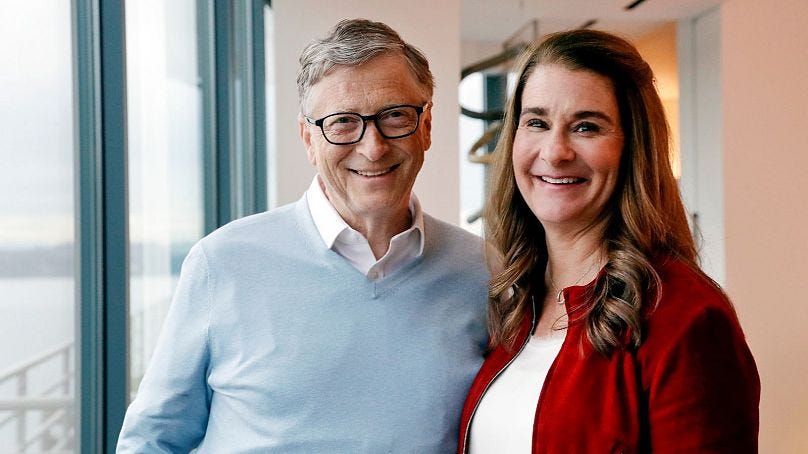
Does the Bill & Melinda Gates Foundation play too big a role?
Lee said the sheer size of the funds from the Gates Foundation compromises WHO’s independence.
“‘He who pays the piper plays the tune’ as the old saying goes,” she said.
“The Gates Foundation has been hugely important for advancing global health in so many areas. The substantial funds provided by the Foundation have undoubtedly done much good around the world and are appreciated,” she nuanced.
“But there are also important questions to be raised about good governance including the accountability, representativeness and legitimacy of having a single foundation be so influential. The current system is frankly undemocratic”.
Donors step in to fill that void and they genuinely believe that their priorities are the right ones. I like to believe they are also well-intended
Kelley Lee
Professor of public health, Simon Fraser University
According to Lee, the scale of the Foundation’s funding “dwarfs most governments and other donors, giving it a much louder voice in so many key global health circles including WHO”.
When global health priorities aren’t clearly set, she added, this can be seen as “much-needed leadership”.
“Donors step in to fill that void and they genuinely believe that their priorities are the right ones. I like to believe they are also well-intended,” she explained.
“The problem is that, if this is how it must be for now, then there must be more efforts to engage and consult with those impacted by their decisions.
“They need to be more transparent in how they decide on where their funds are spent. They need to be self-critical about the short-termism, skewing of priorities, unanticipated effects of funding one issue over another, and the siloing of global health efforts. They must want to be part of the solution to global health governance fragmentation, and not part of the problem”.
The Bill & Melinda Gates Foundation did not reply to a request for comment.
“It’s not right for a private philanthropy to be one of the largest funders of multinational global health efforts,” the foundation’s chief executive Mark Suzman said last month in his annual letter.
“But make no mistake - where there’s a solution that can improve livelihoods and save lives, we’ll advocate persistently for it. We won’t stop using our influence, along with our monetary commitments, to find solutions”.
Suzman said the aim of the fund was not to set the agenda for the WHO or other global health groups but to provide them with better options and data to help inform their decisions.
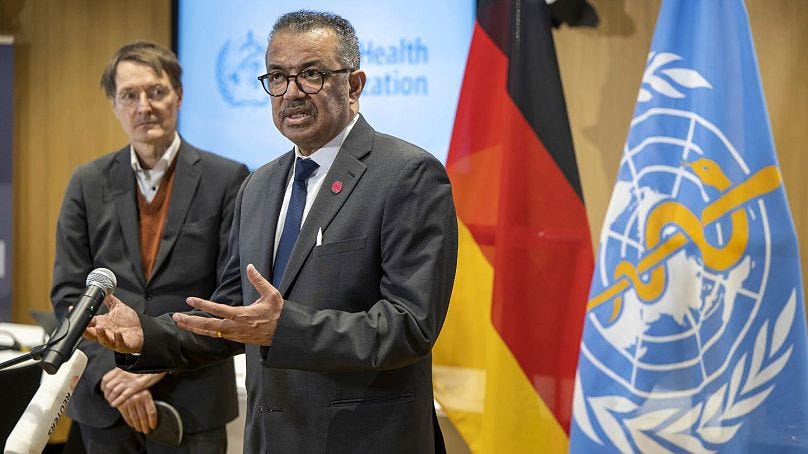
How should the WHO be funded instead?
It’s up to countries to step up their efforts to finance WHO, said Suzman. Last year, WHO member states agreed to increase their contributions.
Gostin also suggested WHO’s funding problems could be solved by raising their mandatory dues.
“Member states should want WHO to succeed. And WHO can only succeed if it has ample and sustainable funding,” he said.
Lee argued that while it’s important for the WHO to receive more funds, where this money comes from is equally important.
“We have to begin with a frank discussion about what we need from a truly global health organisation in the 21st century. WHO was designed for the postwar period of the mid-20th century. The world has changed a great deal since,” she said.
For Lee, it’s time to ask ourselves what kind of global health body we need in a post-pandemic world: “What laws, decision-making bodies, enforcement mechanisms, and funding do we need to keep us all safe and well? What powers does this global health organisation need to do its job?”
She argued that WHO needs to break its reliance on voluntary contributions and should instead be funded through various taxes designed to fund a healthier, pandemic-free world.
“Transport, hospitality, education, professional sports, the financial markets, trading systems, services and so on that benefit from a pandemic-free world could all allocate a small amount towards sustaining WHO,” she said.
“After all, it would be in their interests, and in all our interests, to prevent the kind of large-scale disruptions we have seen over the past three years. It would be money well spent”.
Now you Know, so now you NO.
IOJ side note: WHO’s Framework of engagement with non-State actors1 in paragraph 22 that “a conflict of interest arises in circumstances where there is potential for a secondary interest (a vested interest in the outcome of WHO’s work in a given area) to unduly influence, or where it may be reasonably perceived to unduly influence, either the independence or objectivity of professional judgement or actions regarding a primary interest (WHO’s work) The existence of conflict of interest in all its forms does not as such mean that improper action has occurred, but rather the risk of such improper action occurring. Conflicts of interest are not only financial, but can take other forms as well.”
WHO Conflict of interest distinctions:
Looks to IOJ like BOTH conflicts apply to the entire global regulatory emergency use authorization scheme, including WHO’s authorizations… What do YOU think?
Read WHO’s official guide on “managing” conflicts of interest (hint - it basically says they can’t manage conflicts!)
Direct individual conflicts of interest are those when a person may stand to gain personally if the conflict of interest is not prevented or managed. For example, if the head of the central procurement unit owns stock in a pharmaceutical company, their decisions on awarding tenders may be influenced by the potential for financial gain if medicines from that company are purchased. Alternatively, the conflict of interest may be indirect, such as when an individual’s family member or close friend obtains a financial benefit from the decision (7).
Institutional conflicts of interest are those when an entity is performing two or more roles that may conflict or when the institution has financial interests that clash with its mission or obligations (7,21). An example is where a health technology assessment (HTA) entity receives funding from a pharmaceutical company to support the evaluation of a pharmaceutical product in which the company has a commercial interest.
Bill Gates & his profitable WHO distributed and recommended vaccine peddler $500M investments…
Investigative journalist Jordan Schachtel revealed the extent of Gates’ profit-making from his investments in Pfizer partner BioNTech.
The Bill & Melinda Gates Foundation made 15 times its initial investment when the foundation sold its BioNTech shares at the height of their value in 2021.
First Bill Gates insisted the “vaccines” are the greatest thing since sliced bread.
Yes Bill Gates invested heavily in BioNTech, insisted that ‘mRNA vaccines are great, this is the future,’ he talks about ‘no one is going back to normal until the world is largely vaccinated”. He discusses the vaccine timeline and how we can develop it faster, first saying “ FDA wont cut corners” then says ‘we might have to cut some corners on safety’ … ‘unless you want to wait around 2 years to see what it does’… Hypes it to no end… Abruptly sells it … makes about $500M … THEN finally admits the vaccine sucks ass and never really worked anyhow. Oh yeah, and the alleged virus is not that bad, only a problem mainly for old people.
Grift? Yes. Conflicts of Interest in WHO? Yes? Looks like it! This surely has the APPEARANCE of a conflict of interest, which is a serious breach of WHO duty!!!
WHO will hold WHO responsible for the appearance of conflicts of interest?
We will! Lets go!
Join us over at SuetheWHO.substack.org and subscribe if you have not already to our new publication: Sue the WHO Legal Initiative (Idiot’s Guide To EXIT the WHO) - in a week or so we will start releasing very serious legal information you all need to bring your countries to convince them to EXIT the WHO & waive immunity to Sue the WHO for breaches of duty. Over there is where the organized actions against WHO will be posted to stay organized for this upcoming battle for freedom. If you find our non profit pro bono work of value to humanity, you can also contribute and buy us a coffee & help us keep the lights on!





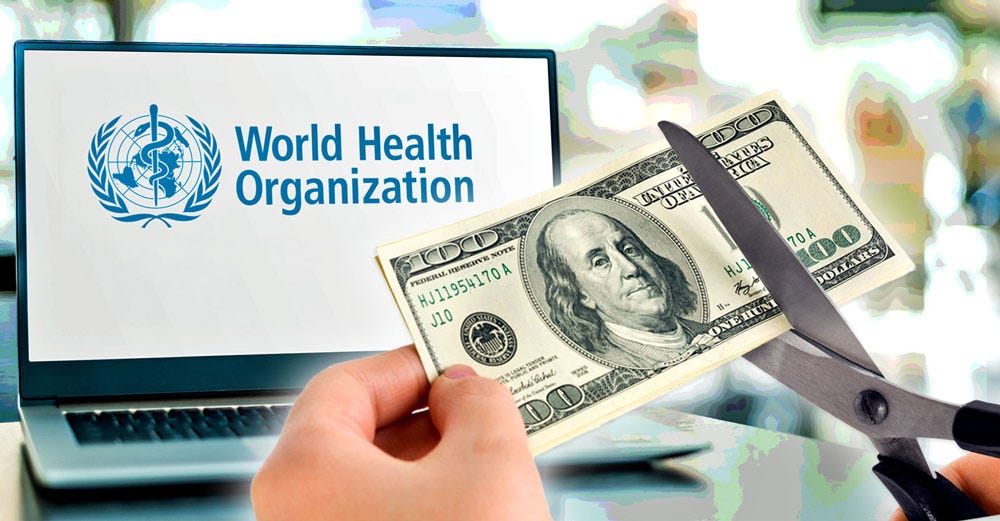

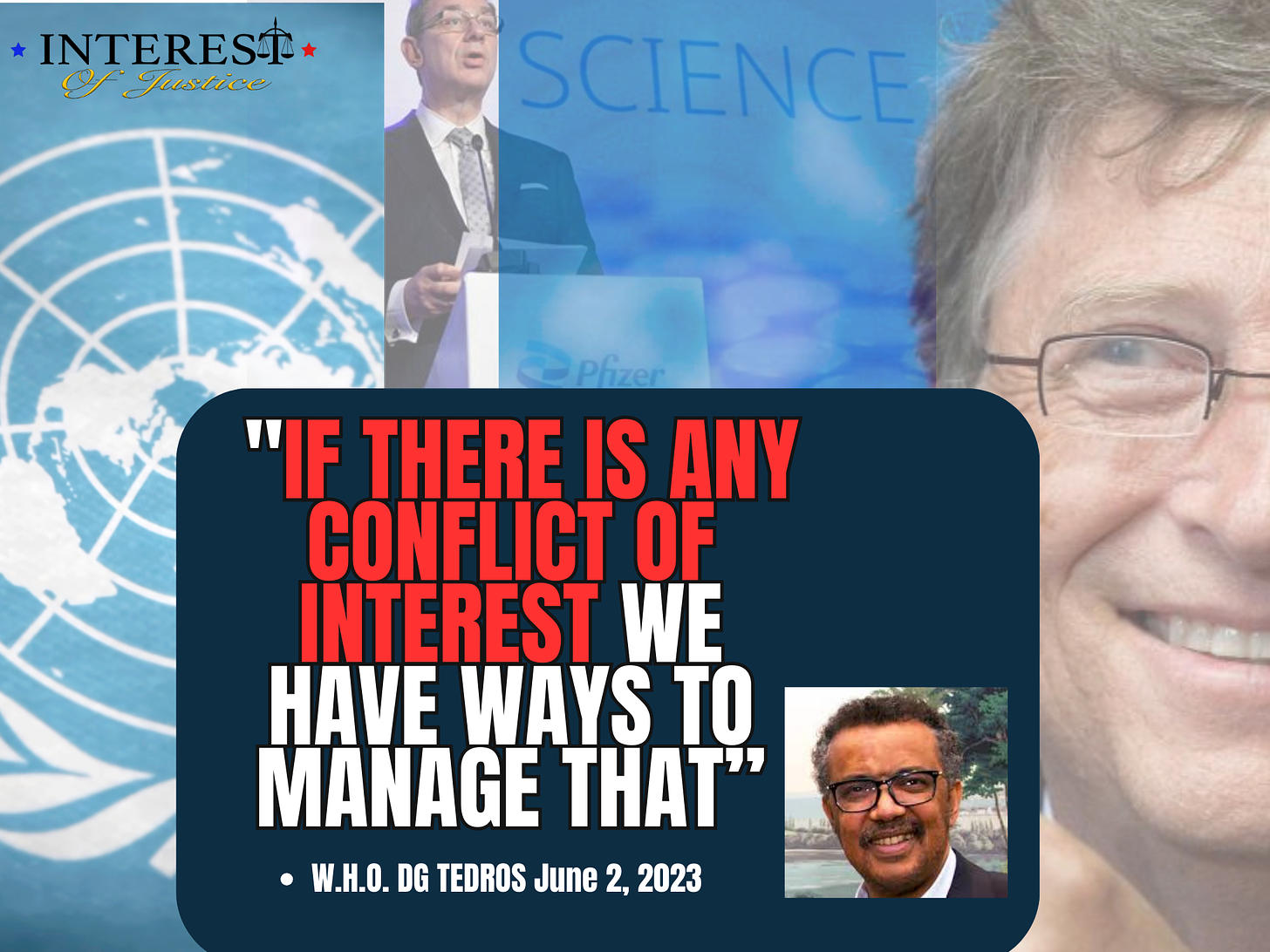






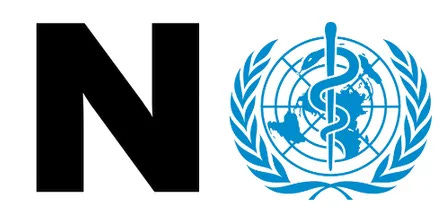


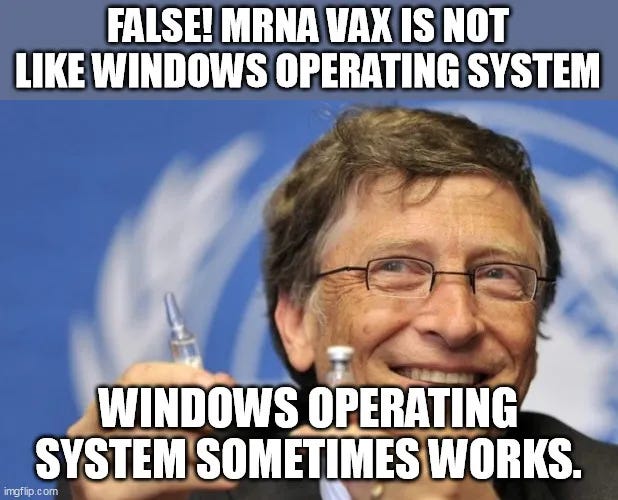
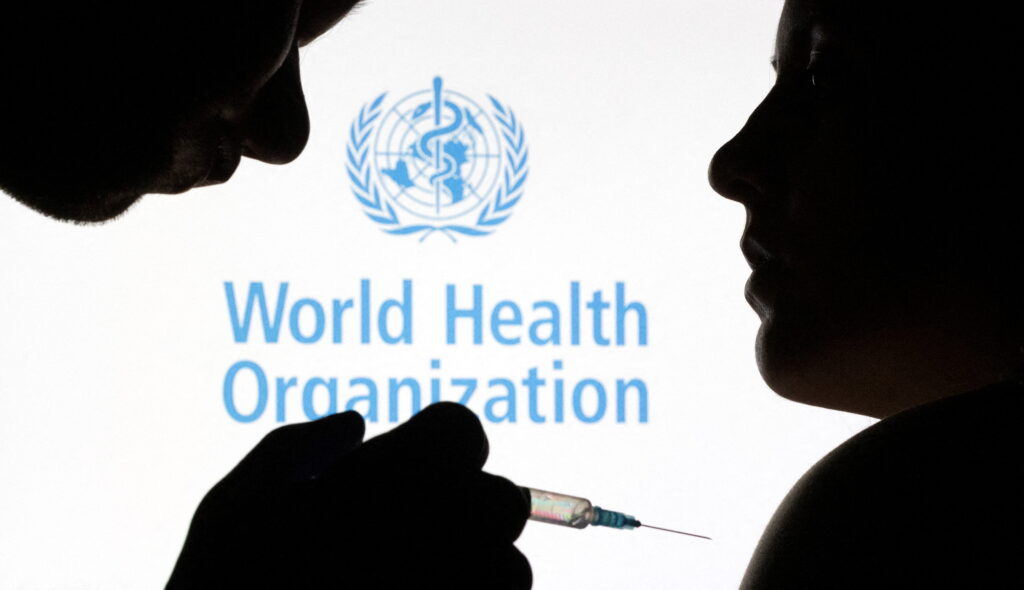



So Bill Gates is a buddy of Tedros and apparently was also of Jeffrey Epstein. And supplied money to both. Neither of which deserve any respect at all. So NO. NO funds to anyone or any organization that Bill is involved in nor Tedros-. We need to start over with Nation state sovereignty. With Doctors that maintain independent critical thinking.
Just saying.
Who owns Bill gates Cia and Blackrock and the globalists